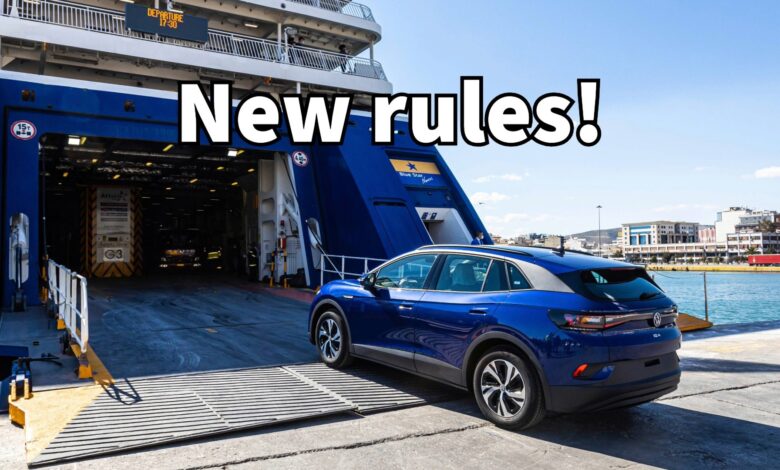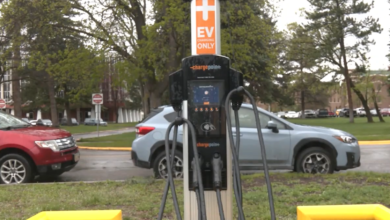You Can’t Use Ferries in Greece if Your Electric Car Has More Than 40 Percent Battery

The world is leaning towards battery-powered vehicles, although Greece doesn’t acknowledge that. A new regulation from the Greek Ministry of Shipping and Island Policy mandates that EVs and plug-ins can’t board a ferry unless their high-voltage battery has a maximum charge level of 40 percent.
A bizarre regulation recently adopted in Greece prevents electric and plug-in hybrid vehicles from boarding a ferry with a full battery. Even half the battery charge is too much, so you better make sure to have less than 40 percent left when you check in on a ferry. The decision the Greek Ministry of Shipping and Island Policy announced was supposedly motivated by safety reasons. This means that anti-EV propaganda prevailed over facts, affecting everyone driving electric vehicles.
Timing the arrival to ensure you have enough battery to make it to the next charger but not too much so that you’re denied boarding is tricky. If you arrive with more than 40% battery, you’ll have to keep driving around until you drop the charge below the threshold. Draining the battery while the car is parked is quite hard, so your best bet is driving. Now imagine the effect of dozens of EVs driving around the port just to drain the battery so they can continue their journey over the sea.
The reason for this regulation is equally stupid because it’s based on the assumption that electric vehicles are dangerous. Statistics have clearly shown that electric cars are about 16 times less likely to catch fire compared to combustion vehicles. However, how you put away an EV fire is completely different from one involving a combustion vehicle. Most ship crews are inexperienced in this regard.
Arriving at the destination port with an almost depleted battery poses additional challenges. The charging stations are still sparse in Greece, with only about 2,000 public charging stations. These are mainly located in southern Greece, most in and around Athens. Stray off the main traffic routes and larger cities and you will have to carefully plan your trip with an electric car. The situation is even worse on islands, where you get by ferry.
Most shipping companies in Greece have already pointed out the new EV regulations on their websites. Not only EVs and plug-in hybrids are affected by this regulation. Drivers of vehicles using alternative fuels like liquefied petroleum gas (LPG) or compressed natural gas (CNG) also face restrictions. In this case, their tanks must not be filled to more than 50 percent of their total capacity.



